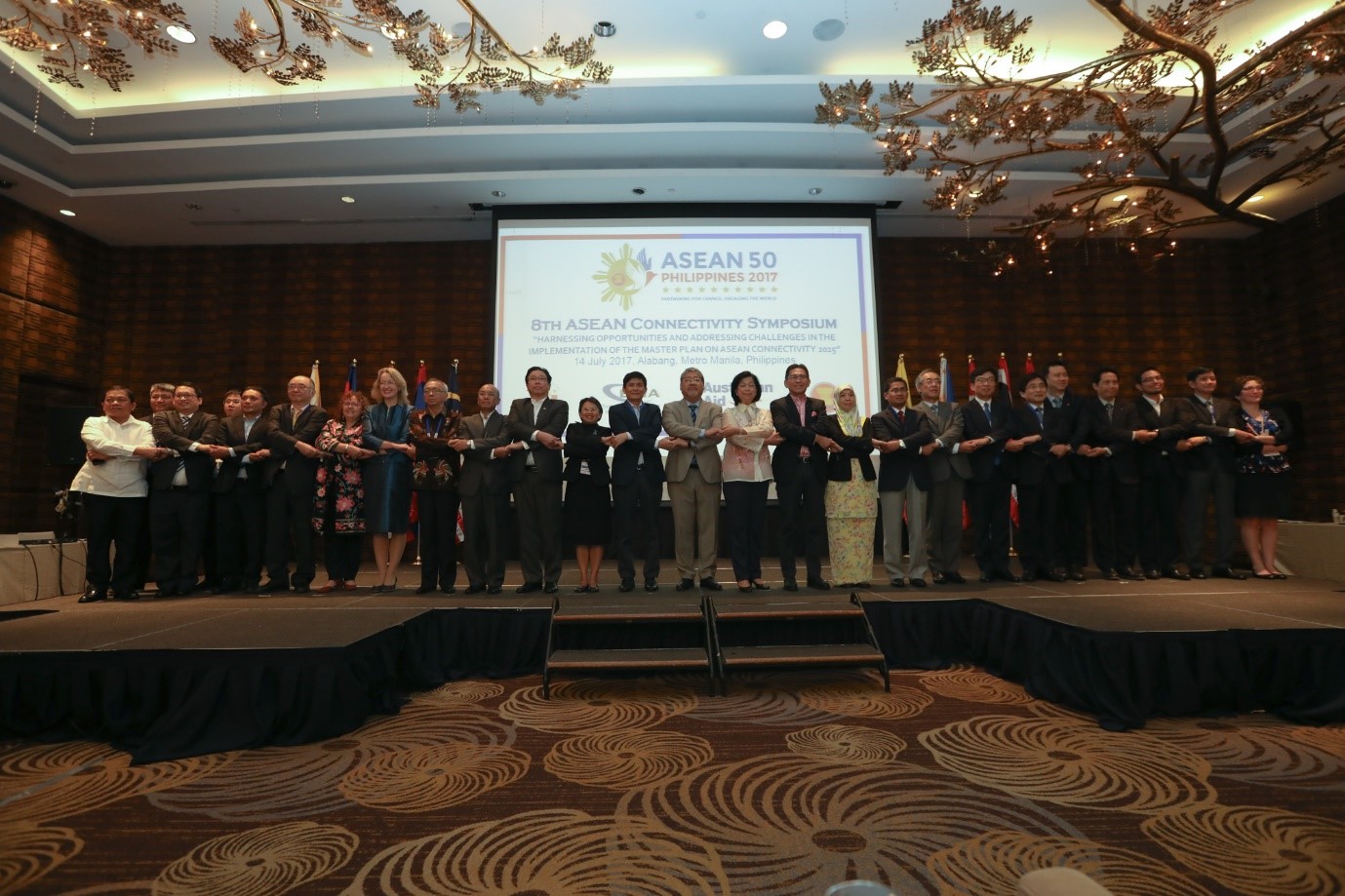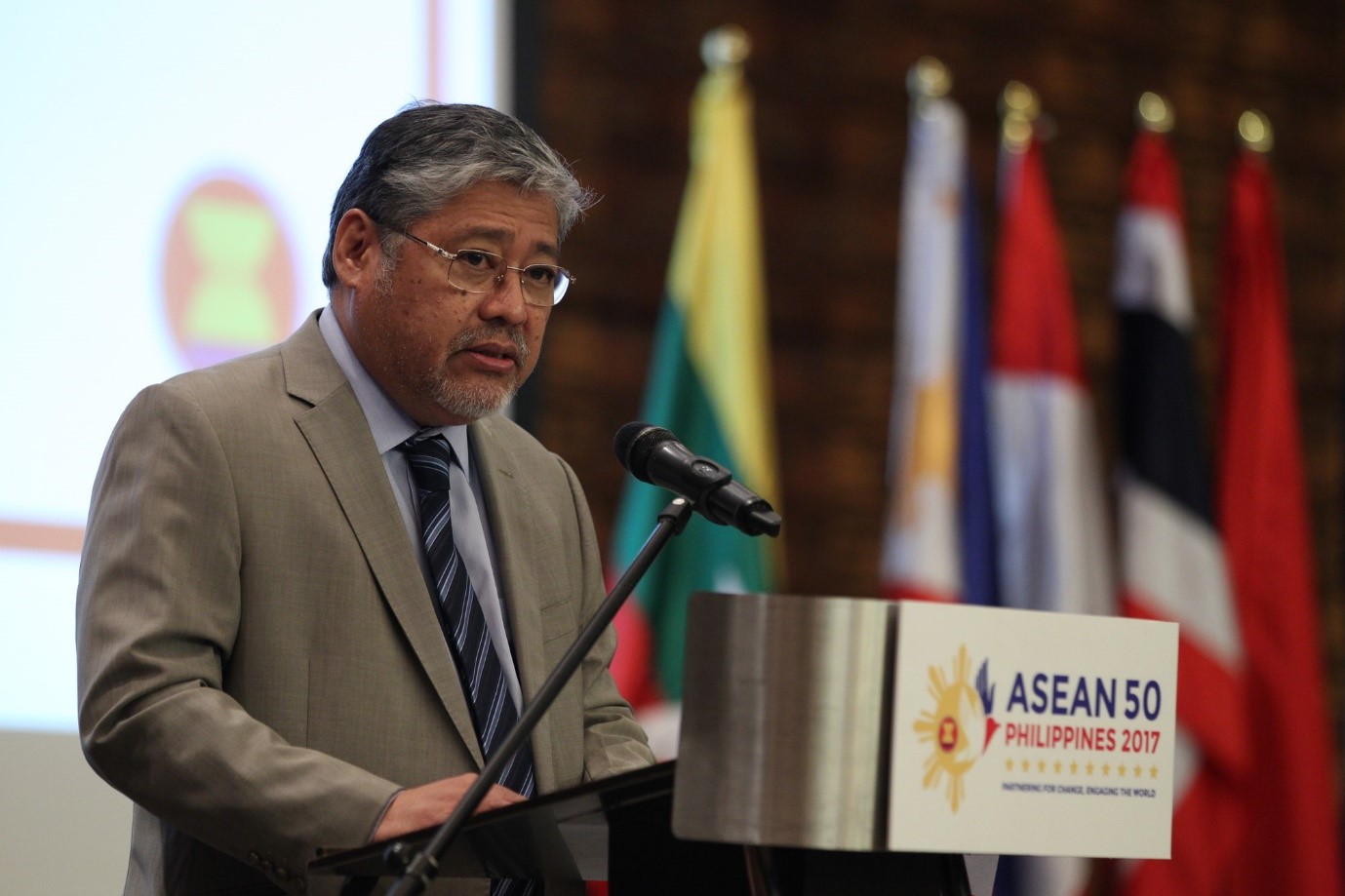
17 July 2017 MANILA – The 8th ASEAN Connectivity Symposium was held in July 14 in Alabang, Metro Manila, Philippines, to deliberate and debate on the implementation of Master Plan on ASEAN Connectivity (MPAC) 2025.
The Symposium brought together around 200 participants from the ACCC, relevant ASEAN Sectoral Bodies, National Coordinators and National Focal Points for MPAC 2025, Dialogue Partners, international organizations, multilateral development banks, private sector representatives, academe and the media.
With theme “Harnessing Opportunities and Addressing Challenges in the Implementation of the MPAC 2025”, the Symposium highlighted that achieving a well-connected region requires regular engagements and continuous discussions with relevant stakeholders towards engendering ownership and support for the implementation of MPAC 2025. The issue of coordination between regional, national and sub-national stakeholders was also brought up. It is crucial to leverage on the support and expertise from Dialogue Partners and international organizations in developing projects, and focusing on the delivery of results and outcomes rather than projects and activities. The Symposium underscored the importance of strengthening statistical systems towards better measurement, monitoring and evaluation of the implementation of MPAC 2025.

“As mentioned by Professor Hidetoshi Nishimura of the Economic Research Institute for ASEAN and East Asia (ERIA), this is indeed a miracle, where we brought together a diverse collection of stakeholders, in order to share perspectives, contribute ideas and formulate recommendations and practical steps forward towards the effective delivery of MPAC 2025… I urge all delegates to take back the outcomes of today’s Symposium as well as the preceding days’ Forum, and work together towards turning the commitments enshrined in the MPAC 2025 into reality.” concluded Ambassador Elizabeth P. Buensuceso, Philippine Permanent Representative to ASEAN and Chairperson of the ASEAN Connectivity Coordinating Committee (ACCC).
The MPAC 2025 aims to achieve a seamlessly and comprehensively connected and integrated ASEAN that will promote competitiveness, inclusiveness, and a greater sense of Community. To achieve this, it aims to implement a number of key initiatives, in particular addressing gaps to improve infrastructure productivity within ASEAN through various targeted programmes; promote greater investment; development of sustainable urbanization and transport; enhancement of Micro, Small and Medium Enterprise (MSME) technology platforms; the facilitation of an enabling regulatory environment for digital financial services; establishment of open data networks and identification of key supply chains, logistics and trade routes, as well as addressing chokepoints; the harmonization of standards and regulatory regimes; identification of Non-Tariff Measures (NTMs); establishment of an ASEAN tourism website; development of E-visa technology across ASEAN; as well as the establishment of vocational standards and training programmes to encourage people-to-people connectivity.
The ASEAN Connectivity Symposium is an annual platform which enables relevant stakeholders to discuss concrete steps and articulate perspectives on the implementation of the Master Plan on ASEAN Connectivity (MPAC) 2025. This year, the Symposium was organized by the Philippine Government, as Chair of the ASEAN Connectivity Coordinating Committee (ACCC), with the assistance of the ASEAN Secretariat and the support of the Economic Research Institute for ASEAN and East Asia (ERIA) and the ASEAN-Australia Development Cooperation Program (AADCP) Phase II. END

